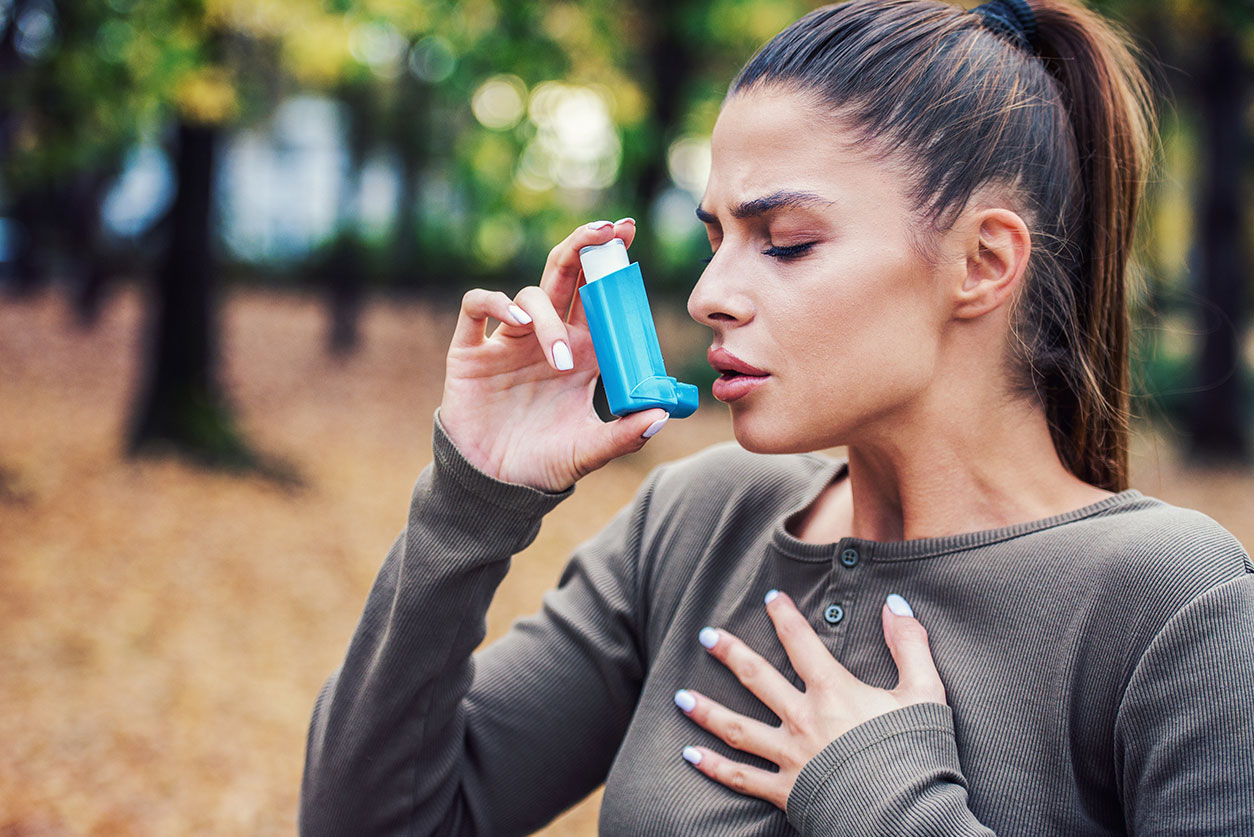In an asthma attack, also referred to as asthma exacerbation, airways become inflamed, and bronchoconstriction occurs. This results in a reduction in airway dimensions and increased resistance to air movement.
What is mild asthma exacerbation?
Asthma is an inflammation of the airways in the lungs. This can be caused by a variety of triggers resulting in partial airway obstruction, known as bronchoconstriction.
The prevalence of asthma has drastically increased since the 1970s. According to World Health Organization (WHO) estimates, around 235 million people worldwide are affected by asthma. The mortality rate associated with asthma has decreased over time due to the advances in medical treatment.
Asthma can affect anyone of any age and is a major cause of Urgent Care and ER visits every year.
Pathophysiology
The physical mechanism of asthma involves:
- Bronchoconstriction
- Airway swelling and inflammation
- Airway hyperactivity and remodeling
Asthma is triggered in many ways. Some of these include reactions to allergens, infection, and stress. This causes the major air passages in the lungs (bronchi) to constrict. This, in turn, leads to difficulty breathing and shortness of breath.
Although the major signs and symptoms of asthma are associated with breathing and lungs, there can be some lab findings in bloodwork that would indicate asthma. Most notably, some patients with allergen-triggered asthma may have elevated eosinophil readings.
Triggers
Common triggering stimuli of an asthma exacerbation include:
- Environmental and occupational allergens
- Cold and dry air
- Smoke
- Dust
- Other inhaled irritants
- Infections
- Exercise
- Some medications
In the case of children, infectious triggers are also more likely to include viral infections like the flu and the common cold.
Symptoms
Patients with well-controlled asthma may have no symptoms between exacerbations. When they do have exacerbations, they may experience dyspnea, chest tightness, audible wheezing, and coughing. These symptoms will vary depending on the severity of the exacerbation and the type of asthma a patient has.
Treatment
The goal of asthma exacerbation treatment is to relieve symptoms and return patients to their best lung function.
Patients with mild asthma exacerbations can usually manage their symptoms at home with their asthma inhaler using instructions they have already been given by their medical provider.
If symptoms are not relieved after the initial treatment, medical help may be required.
Urgent or Emergency Treatment
Medical treatment of asthma exacerbations is handled in a few different ways. First, patients may be given inhaled bronchodilators via nebulizer. Supplemental oxygen may also be provided either by nasal cannula or face mask. The goal of this is to keep a patient’s oxygen levels at or above 90%.
More serious exacerbations may require medication injections or hospitalization.
Contact us
In case of urgent medical care assistance, AfterOurs Urgent Care offers immediate telemedicine services through telemedicine appointments, where medical providers are available to offer assistance. Anyone who experiences signs and symptoms requiring urgent medical attention can simply book their appointment with AfterOurs Urgent Care to directly talk to an expert. If your medical issue is not appropriate for telemedicine, we will let you know and refer you to an in-person facility.
When to visit a doctor:
If you experience symptoms of asthma that cannot be relieved at home, you should seek immediate medical assistance.
Treatment for asthma exacerbation is available at AfterOurs Urgent Care.

